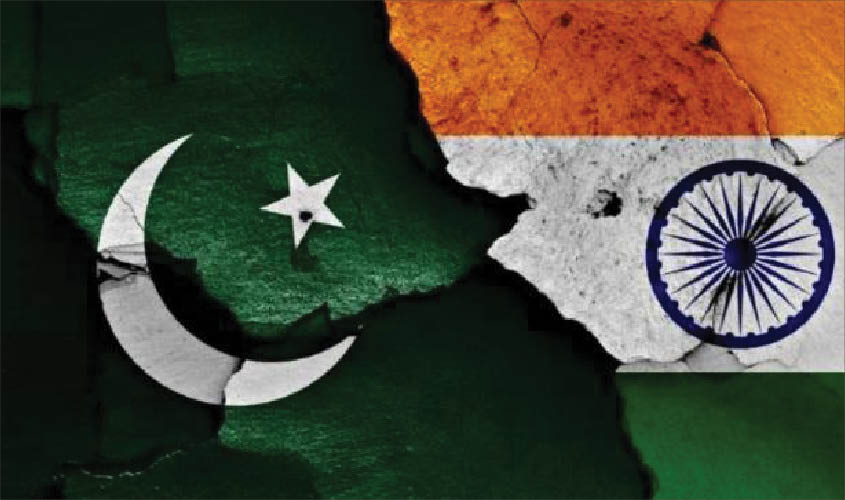Pakistan needs to shed its Kashmir obsession for the long term normalisation of India-Pakistan relations.
The combined ages of the nine oldest surviving members of the IFS add up to an impressive 831 years. Who are these relics of the past?
V.M.M. Nair, born 8.10.1919, B.A (Hons) Madras, MA Oxford, MA Cambridge, Barrister-at-law, joined ICS in 1942, Inducted into the IFS in 1947. Ram Pratap Singh, born 3.3.1922. MA, LLB, Allahabad University. Joined IFS on 15.4.1948—in the first batch of the IFS, which passed the civil services examination conducted by Union Public Service Commission.
K.L. Dalal, born 10.4.1924. BCom (Bombay), BSc (Economics) London School of Economics. Direct recruit to IFS on 21.3.1949.
M.K. Rasgotra, born 11.9.1924. Joined IFS on 27.9.1949.
Eric Gonsalves, born 9.5.1928. BSc (Hons) Madras University. Joined IFS on 24.5.1950.
- Krishnan, born 1928. BA (Hons) Economics. Joined IFS on 17.7.1951.
K.P.S. Menon, born 4.11.1929. BA (Hons) Economics, St. Stephen’s College, Delhi. Joined IFS on 4.11.1951.
K.S. Bajpai, born 30.3.1928. BA (Hons) Oxford. Joined IFS on 2.4.1952.
- Natwar Singh, born 16.5.1931. BA (Hons) History, St. Stephen’s College, Delhi. Joined IFS on 14.4.1953.
Till 1957, Prime Minister Jawaharlal Nehru used to meet each new entrant personally, before they joined Metcalfe House.
***
C.P. Joshi is a seasoned and well regarded Rajasthan politician. He has been in the political arena for nearly five decades. He is a general secretary in the All India Congress Committee. Last week, he put both feet in his mouth. He made an outrageous pronouncement in Nathdwara. Brahmins understand Hinduism. The rest of us—80% Hindus—have no idea what our religion is. What must the soul of Valmiki be going through. The Congress president did well to ask Joshiji to apologise, which he did. But the damage was done.
***
The laying of the foundation of the Kartarpur Sahib Corridor earlier in the week was a significant and welcome event in the history of India-Pakistan relations. Pakistan Prime Minister Imran Khan did the honours. India was represented by two Central Ministers, both Sikhs. Punjab minister Navjot Singh Sidhu went to Kartarpur Sahib in his “private” capacity at the invitation of the Prime Minister of Pakistan. Ministers do not make “private” visits while in office. They certainly make unpublicised visits for back channel diplomacy. The Chief Minister of Punjab declined Imran Khan’s invitation for policy reasons, and rightly so. Navjot Sidhu is, what is popularly known “a character”, i.e., he is unconventional, endowed with spontaneous wit, irresponsibly outspoken and with very poor political judgement. On account of his cricket achievements he is well known in Pakistan. Like all politicians he is fond of his own voice. Verbal restraint is totally absent in his case. He behaved unbecomingly in Kartarpur Sahib. The Congress president should reprimand him. The mutual backslapping between Imran Khan and him was unseemly and avoidable. For the Pakistan Prime Minister to say that he hoped that one day his friend would be Wazir-e-Azam of India, was, I hope, a joke and nothing more.
Subsequently, Prime Minister Imran Khan has made welcome pronouncements for improving India-Pakistan relations, “I can say in all earnestness that it is not in Pakistan’s interest for anyone to use our soil for terrorism…there is a clampdown on him (Hafiz Saeed). The case against the accused in the Mumbai attacks is in court and it is sub judice.” But why was he, in the first instance, released?
Let us give Imran Khan the benefit of doubt. He genuinely wishes that he will go out of his way to improve India-Pakistan relations and is willing to wait till after the 2019 Lok Sabha elections for any forward movement, while stressing that the push for peace could not be one sided. The fact is, Imran Khan proposes, the army disposes.
The adamantine fact is that he can make announcements regarding cordial relations between the two countries, but he does not make policy—that task is in the hands of the Pakistan army. His analogy of France-Germany is in no way applicable to India and Pakistan.
I have repeatedly said that unless Pakistan sheds its Kashmir obsession, no long term normalisation of India-Pakistan relations can take place.

